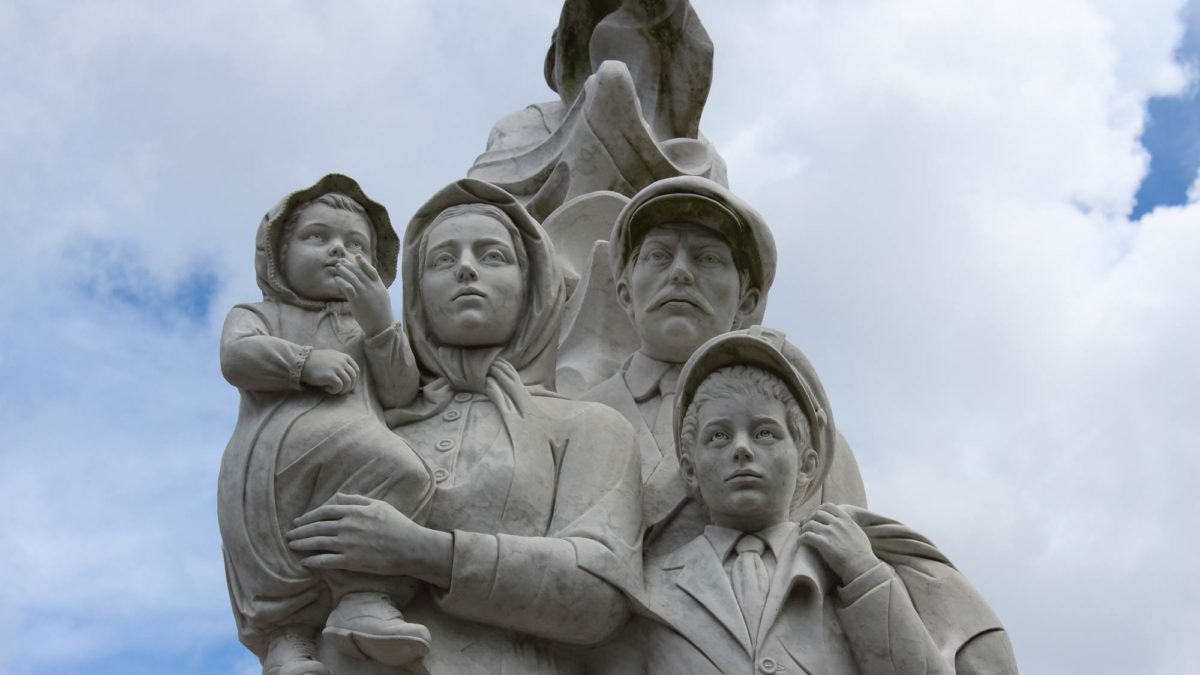
Recent comments from Trump spiritual advisor Paula White have now brought the person of Jesus into the immigration discussion. Interesting point, but the question of legal or illegal is not really at the core of this discussion. In my soon-to-be-released book, “Unfriended: Finding True Community In Our Disconnected Culture”, I offer some possible insight into this debate.
There has certainly been much political grandstanding, handwringing, soul-searching, and name calling on this issue. Immigrants, “dreamers,” and refugees—however you identify them, one thing remains: Everyone has a name … and a story.
I understand the issues surrounding terrorism today, as sound policy must accompany government’s mandate to assure the safety of its people. But can sound policy and humanitarian need come together in wise decision-making? I believe it can, but it will take those not driven by agendas to make it happen. It will happen only when decision makers also see themselves as aliens and immigrants and act from that baseline of thinking.
After we strip away the politics and semantics, we are faced with basically human issues. And Scripture has ample wisdom within its pages to address most any issue that deals with the human condition.
First of all, from Genesis to Revelation, stories of immigrants, dreamers, and refugees are replete throughout the Bible, and part of the grander biblical narrative. God understands displaced people.
Surely, we can learn something applicable for today from digging into these stories. The bigger the political debate on this issue, the more we need to focus on what I call the “transcendence of immigration.” And I find no greater illustration of the transcendence of immigration than in the person of Jesus. Talk about a “dreamer.” A child born in a manger in a foreign land brought there by his parents. Sounds much like the dreamers of today.
The very notion of God stepping out of eternity into time to live among us is the ultimate immigration story. And Jesus was the ultimate immigrant.
Scripture says that Jesus came so all of us could experience the wonder of God’s love, which created a new community of people who understood and accepted their roles as aliens in this world, and therefore looked to their God as the one who calmed their fears amid turbulence, political unrest, and dislike of their people group.
Jesus constantly was changing the ground rules about who was our neighbor, how we treat others, how we envision our security, how to be a good citizen. His entire Sermon on the Mount was a counterintuitive manifesto for this new community of displaced people.
Jesus came to define this new community as one comprised of immigrants and aliens living in their own land.
This new community was radical to the core. Jesus empowered women, healed the sick, and welcomed children, giving hope to the weak, the poor, and the enslaved. He focused on the outcasts, the disenfranchised, and attended to the lepers—the unclean citizenry of his day, relegated to their own refugee camps. A leper running among the clean was the terrorist of his day.
The world had never seen or heard of the things He embodied. He taught us a new definition of community—simply that everyone who believed in Him would be known by one thing: their love for one another. Everyone was invited to be a part of this community; there were no distinctions. He helped us understand that we are all refugees, aliens, or immigrants somehow. When we understand that, our neighbor begins to look less like the bad guy and more like a brother.